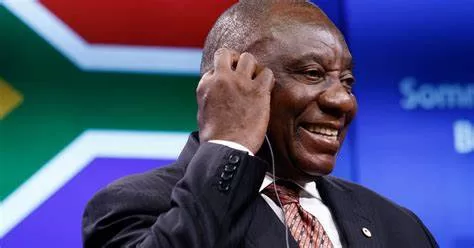South Africa’s African National Congress (ANC) and the Democratic Alliance (DA) have joined forces to form a Government of National Unity (GNU). This coalition, aimed at navigating the country through its current economic and political turmoil, presents both opportunities and significant challenges, primarily stemming from their stark ideological differences and the exclusion of other influential political parties.
Disclaimer
This page contains Affiliate ads
Table of Contents
Ideological Differences: A Recipe for Conflict
Divergent Political Philosophies
The ANC, with its socialist leanings, has historically focused on social welfare and state intervention in the economy. Conversely, the DA advocates for liberal economic policies, emphasizing free-market principles and reducing government involvement. This fundamental ideological clash could lead to frequent policy gridlocks and internal conflicts, hampering effective governance.
Political analyst Daniel Silke points out the fragile nature of this coalition: “It is an uncertain period but a period where there are prospects for a dramatic change in South Africa. It is a new context for South Africa. It depends on the power balance within this formation if it is going to work”.
Policy Gridlocks
The challenge of merging the ANC’s and DA’s policies is evident in key areas such as economic strategy, social welfare, and corruption. The ANC’s emphasis on state-led initiatives and the DA’s market-driven approach will need to find a middle ground. This balancing act is crucial to avoid legislative paralysis and ensure the coalition can implement effective and coherent policies.
Exclusion of Major Parties: Brewing Unrest
Marginalization of EFF and MK Party
The decision to exclude the Economic Freedom Fighters (EFF) and the MK Party, led by former President Jacob Zuma, from the GNU has significant implications. These parties, representing a considerable portion of the electorate, could mobilize their supporters to oppose the new government, increasing political unrest and instability.
Fredson Guilengue, an analyst at the Rosa Luxemburg Foundation, emphasized the need for stability: “What the ANC had in mind by inviting the DA and the IFP to be part of this agreement was the need for stability for the government, which would mean stability for the country itself”. However, this stability is threatened by the potential backlash from the excluded factions.
Potential for Opposition
The EFF, known for its radical policies and populist rhetoric, might leverage its exclusion to galvanize support and intensify opposition against the GNU. Similarly, the MK Party, with its strong base among former ANC loyalists, could create further political friction. The ANC and DA must address the concerns of these excluded parties to mitigate the risk of widespread dissent.
Internal Frictions: Maintaining Cohesion
Balancing Power Dynamics
The internal dynamics of the coalition present another significant challenge. The ANC and DA must navigate their historical rivalry and differing political philosophies to maintain a unified front. This requires significant compromise and effective collaboration, which could be difficult given their divergent views on key issues.
Asanda Ngoasheng, a political analyst, noted the difficulty of this arrangement: “In terms of South Africa being able to move forward, it is not a bad idea,” she said. However, she also pointed out the challenges of managing such a diverse coalition and the risk of internal conflicts.
Tired of political Games? Level Up Your Game Night with Geekson’s Bespoke Board Game Tables! Dive into fun without the drama.
Governance and Anti-Corruption
One potential advantage of the GNU is the opportunity to implement robust anti-corruption measures. With increased scrutiny and cross-party checks, there is hope for more transparent governance. The coalition can leverage the DA’s emphasis on accountability and the ANC’s governance experience to address corruption and inefficiency within the government.
Future Outlook: Navigating Uncertainty
Economic Prospects
Despite the political challenges, the formation of the GNU has been positively received by financial markets. The South African rand strengthened against the US dollar following the announcement, reflecting investor confidence in the new government’s potential to drive economic reforms and attract foreign investment.
The pro-business stance of the DA, combined with the ANC’s focus on social welfare, could create a balanced approach to economic policy. This balance might foster an environment conducive to sustainable economic growth and job creation.
Maintaining Stability
The success of the GNU will largely depend on its ability to maintain social and political stability. The coalition must address the concerns of all South Africans, including those represented by the excluded parties. This requires inclusive policies that promote social equity and address the needs of marginalized communities.
The ANC and DA must also manage their internal differences and present a united front to the public. Effective communication and collaboration will be crucial in achieving this goal. The coalition’s ability to deliver on its promises and improve the lives of ordinary South Africans will determine its long-term success and stability.
Conclusion
The formation of South Africa’s Government of National Unity marks a significant political shift, ending decades of ANC dominance. While the coalition brings hope for economic reform and stability, it also poses significant challenges due to ideological differences and the exclusion of key opposition parties. The future of the GNU will depend on the coalition’s ability to navigate these challenges and deliver on its promises to the South African people.
The success of the GNU will hinge on its ability to foster unity, drive economic growth, and maintain political stability amidst diverse and often conflicting interests. The coalition’s ability to implement effective governance and address the country’s pressing issues will be critical in shaping the future of South Africa.
Politics is a game of strategy. Level up your tactical advantage with our game tables.
The ANC and DA coalition represent a new chapter in South Africa’s political history. The road ahead is fraught with challenges, but it also offers opportunities for significant positive change. The coming years will be a test of the coalition’s resilience and ability to deliver on its promises amidst the country’s complex and evolving political landscape.

